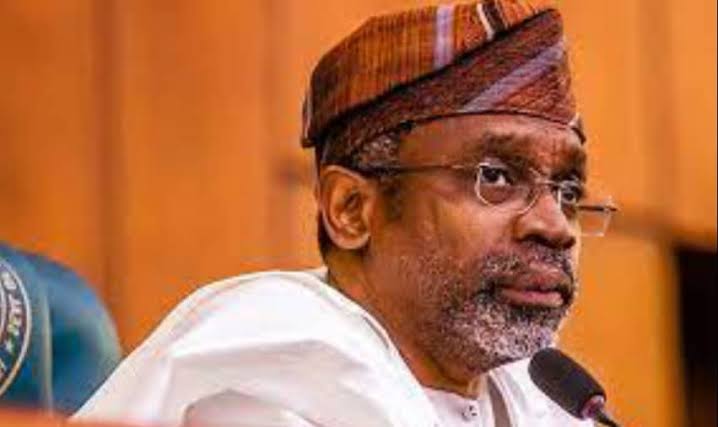Several faceless groups masking themselves under fanciful nomenclatures have descended on the public space to discredit persons within the government of President Bola Tinubu they perceived as stumbling block to their own ambitions.
The latest of such group is one that calls itself The Nigerian Transparency Initiative For Good Governance which issued a statement over the weekend about alleged “ongoing corruption within Nigeria’s oil and gas sector.”
The group alleged that elements within the Federal Government, spearheaded by the Chief of Staff to the President, Femi Gbajabiamila, are “trying to undo some of the critical decisions taken by the previous administration…”
But it quickly gave itself away as the proxy voice of oil sector cabal when it alleged reversal of the appointment of pre-shipment inspectors and monitoring/evaluation agents for crude oil and gas exports under the Nigerian Export Supervision scheme. The group named seven agents said to have been approved by the previous administration and yell that any attempt to reverse the contracts would amount to economic sabotage.
It’s amusing that the same group acknowledged the important reforms the Tinubu administration had embarked upon and the president’s desire to safeguard the oil and gas industry. It also admitted the efforts of the administration to sanitise the oil sector, encourage investments and expand the infrastructures to accommodate growth and development necessary to pull back the nation’s economy from the brinks of precipice!
But it is laughable that one of the men behind the president’s renewed hope reforms can be labeled as a saboteur in a government he’s a key part of. It is not surprising that the chief of staff has also come under attack from vested interests and established criminal elements who would do anything to ensure the status quo remains.
The same elements have continued to wage war of attrition against the Group Managing Director of the NNPC, Malam Mele Kyari, and have demanded the president remove him from office. Now that they appeared to have failed in that project, they have turned on the chief of staff!
Gbajabiamila is the next target, no doubt. Several other Tinubu men have continued to be targets of vitriolic abuse for these nefarious groups fighting for a cabal that is losing grip. The Secretary to the Government of the Federation, George Akume, had also been vilified and described as sabotaging the government of Tinubu.
But Gbajabiamila’s travails is even more atrocious. He is said to have erected strong barricade against the Lagos Boys who see Tinubu as their own, and feel entitled to the villa. The word on the street is that Gbajabiamila is blocking everyone from getting access to the president. They obviously think he has such huge powers over the president that he can dictate to him who he sees.
Gbajabiamila himself must be familiar with the antics of people around the corridors of power who feel frustrated that they’re unable to wield enough influence for trading, and blames everyone else for their problems. It’s obvious that those one of the groups after Gbajabiamila are the Lagos Boys who feel entitled to Tinubu and are determined to cut down anyone blocking or seen to be blocking their path.
Others are political jobbers whose feel their expectations to land juicy appointments in the new administration quickly vanishing in light of the quality appointments the president has been making. Many of these people are the run of the mill politicians who see government appointments as opportunity for feathering their nests, and not for selfless service.
It’s obvious such people underrate President Tinubu’s innate ability for quality head hunting to feel leadership positions. Perhaps they need to be reminded to take another look at Lagos and the type of leadership Tinubu has offered the state. Or do they expect it to be different in Abuja?
Tinubu has started his administration like a man on a mission for urgent rescue. While there’s no doubt that President Tinubu is no longer the Jagaban of previous years due to age, anyone that has met him recently would no doubt attest to his undiminished political intelligence and the energy to deliver.
Gbajabiamila certainly earned a seat close to the President, and Tinubu alluded to this in the speech he gave after he was declared winner of the presidential election in February. While acknowledging party men and women who worked for his success, he looked at Gbajabiamila and said, “your sacrifices will not be forgotten.”
Tinubu knows the people he’s appointed into key positions. He’s not like some leaders who completely rely on others to choose for him. He has a fair idea about everyone before working with them. And for a man who has been at the centre of national politics for more than two decades, it’s almost an insult to warn him against his own people.
The so-called transparency group equally admitted that each time the government takes decisions to move the oil and gas sector forward, some vested interests would begin to create problems to frustrate government decisions and cripple the entire sector. This is certainly true, and it reinforces the argument that those forces had existed before Gbajabiamila became chief of staff, and so he cannot be the problem.
Anyone who has followed Gbajabiamila during his time as speaker of the House of Representatives knows how progressive a politician he is. And no one would know that better than President Tinubu who had supported Gbajabiamila’s political ascendancy.
AS speaker of the 9th House of Reps, he introduced discipline into the appropriations process by implementing a January to December budget cycle that ended the policy instability and economic uncertainty of the previous irregular budget cycles. He also encouraged debates of critical national issues on the floor of the House.
Amongst the achievement of the House under his leadership include the passage of the Petroleum Industry Act (PIA), the Deep Offshore and Inland Basin Production and Sharing Contracts Act; the Electoral Act Amendment, and the Police Act, among others.The House also passed the Police Act to change the nature of relations between the police and citizens in the country while ensuring that police officers who fell short of their responsibility could be quickly held accountable.
On a personal note, he intervened successfully several times to ensure NLC didn’t go on strike, or call off the strike. When talks broke down between Labour leaders and the federal government, he was always willing to ensure a truce and get the country working. Certainly, if there are vested interests in the presidential villa today, it is without doubt, a vested interest in the progress of Nigeria.



